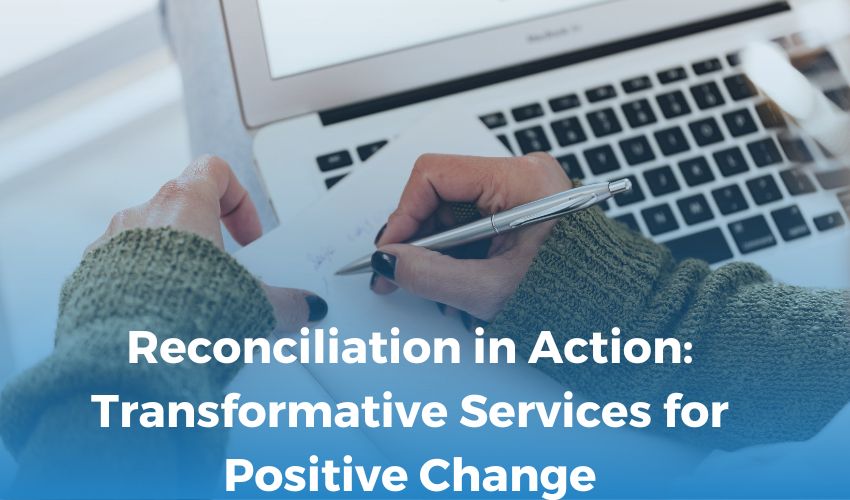

23-11-23
in a world marked by diversity, conflicts, and historical wounds, the concept of reconciliation stands out as a beacon of hope. It goes beyond mere acknowledgement of differences; it strives for understanding, healing, and positive transformation. This blog explores the significance of reconciliation in action and the role of transformative services in bringing about positive change.
Understanding Reconciliation:
Reconciliation Service Provider is not just a buzzword; it's a profound process that involves acknowledging past wrongs, fostering understanding, and working towards harmonious coexistence. Whether on a personal, societal, or international level, the journey towards reconciliation is marked by empathy, forgiveness, and a commitment to building bridges.
The Need for Reconciliation:
The scars of history, be they rooted in colonialism, war, or social injustice, continue to cast shadows on the present. Reconciliation becomes imperative for breaking these chains and creating a future where wounds are healed and communities can thrive. It's about moving from a place of animosity towards a shared vision of unity and cooperation.
Transformative Services as Catalysts for Change:
Transformative services play a crucial role in turning the wheels of reconciliation. These services encompass a wide range of initiatives, from community programs to educational platforms, designed to reshape perspectives, challenge biases, and empower individuals and communities.
Educational Initiatives:
Education forms the bedrock of societal change. Reconciliation requires a deep understanding of history, culture, and the experiences of others. Transformative educational initiatives focus on creating inclusive curricula, promoting cultural sensitivity, and fostering open dialogues that challenge stereotypes. By equipping individuals with knowledge, education becomes a powerful tool for dismantling prejudices and nurturing empathy.
Community Engagement Programs:
Reconciliation is a collective effort that thrives on community engagement. Transformative services often involve community-building programs that bring people from diverse backgrounds together. These initiatives create spaces for dialogue, celebration of diversity, and collaborative problem-solving. By fostering connections at the grassroots level, communities become resilient and united against the divisive forces that may have plagued them in the past.
Counseling and mental health support:
Healing the wounds of the past requires emotional resilience. Transformative services include counseling and mental health support to help individuals and communities navigate the complexities of reconciliation. These account reconciliation services in USA provide a safe space for people to share their experiences, process trauma, and build the emotional strength needed to forgive and move forward.
Restorative Justice Programs:
Traditional justice systems often fall short of addressing the root causes of conflict. Transformative services include restorative justice programs that focus on repairing harm rather than punitive measures. These programs provide a platform for victims and offenders to engage in dialogue, understand each other's perspectives, and work towards restoring harmony. By prioritizing rehabilitation over punishment, restorative justice contributes to long-lasting positive change.
Media and Arts for Social Transformation:
Transformative services harness the power of media and the arts to challenge existing narratives and inspire change. Through storytelling, films, art, and other creative mediums, individuals can share their experiences and perspectives, fostering empathy and understanding. This cultural shift is integral to reconciliation, as it allows societies to reimagine their shared narratives and redefine their collective identity.
Conclusion:
Reconciliation in action is not a one-size-fits-all endeavor; it requires a multifaceted approach that addresses the unique challenges faced by individuals and communities. Transformative services serve as catalysts for this positive change, providing the tools and platforms needed to break down barriers, heal wounds, and build a future where diversity is celebrated and unity prevails.
As we embrace the concept of reconciliation services in usa in action, let us recognize the transformative power of services that go beyond rhetoric, actively engaging in the creation of a world where understanding and cooperation triumph over division and discord. Through these efforts, we can lay the foundation for a future defined by harmony, empathy, and positive transformation.
Tags :













































.jpg)
.jpg)
.jpg)
.jpg)


).jpg)














 Get A Quote
Get A Quote
Leave A Comment